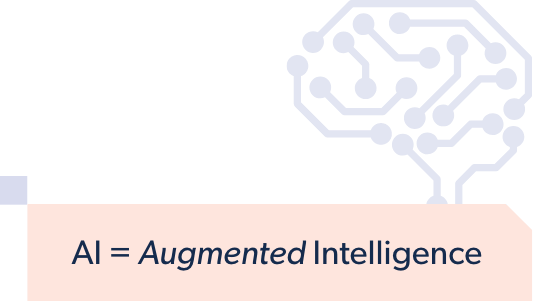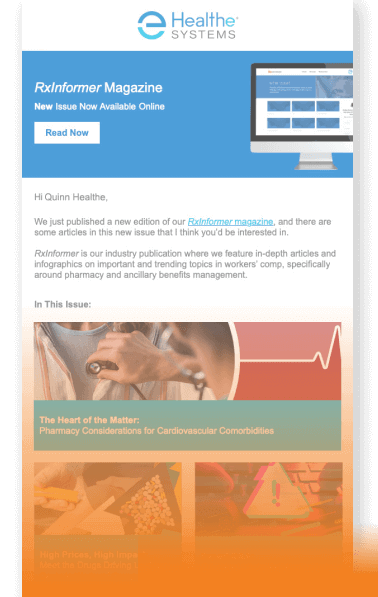Workers’ compensation professionals, including executive leaders, clinical managers, and claims professionals, are concerned about complex claims, a theme revealed in our 2020 Workers’ Comp Industry Insights Survey of 629 industry stakeholders.
Participants reported that increasing claims complexity is a major challenge for the industry and their own programs, citing:
Both challenges point to the increasing need to automate the data analysis that informs clinical decisions and the targeted interventions that may accompany them, as well as increase the breadth of data that would provide more informed insights. Here we can leverage smart technologies, including forms of artificial intelligence (AI), not to replace human intervention, but to augment it. When integrated effectively into programs, these technologies can drive a more efficient, impactful, and high-touch claims management approach.
Early decisions are crucial to optimizing management of medical care. Even the most routine claims can escalate due to highly individualized factors, including patient demographics, comorbid or mental health concerns, or the presence of opioids and other drugs of concern.
Many of these individual factors are contained within the context of clinical records throughout a patient’s care continuum. For example:
Physician notes may include references to anxiety, fear, lack of family or social network, or the presence of a comorbid condition – all factors that may not be apparent during treatment of the primary injury unless the patient communicates these concerns.
These are just a few examples that can serve as early indicators of progress, or lack thereof, and can make the difference between an injury that resolves quickly and one that progresses on to costly complications. Timely insight into an individual patient’s overall health and a claim’s evolution can inform more targeted clinical interventions that shift the trajectory of a claim. The challenge? Much of this information resides in disparate systems and unstructured text, such as the electronic health record (EHR) and notes from the physician, physical therapist, or home health agency, which are outside the workers’ compensation transactional record.
(See “A New Routine: The Growth of Complex Claims and How to Manage Them” in Healthesystems’ Spring/Summer 2020 RxInformer)
The traditional way to access this vitally important but unstructured information requires an individual (e.g., claims professional or nurse case manager) to comb through the patient’s individual medical record, identify factors contributing to complexity, and develop interventional strategies to improve claim outcomes. While this approach can be effective, the manual burden and time constraints limit the practicality of implementing this process programmatically at a larger scale. Integration of artificial intelligence, specifically Natural Language Processing (NLP), can gain significant ground in terms of efficiency and scalability.
NLP allows a machine to process and analyze large amounts of natural language text and extract the key data elements that provide insight and context to clinical complexities. Rather than applying valuable clinical resources to read through individual medical records, data extracted through NLP can quickly point clinical and claims professionals to the most pertinent medical information within each claim.
NLP can also expand reviewing capacity to all available records for an entire patient population. All this unstructured data can be stored as discrete data elements to inform increasingly refined analytical models. Other artificial intelligence and machine learning tools can process large amounts of data, auto-segmenting the claimant population and assigning risk and severity scores. The more data there is to work with, the more accurate these models become. So, as NLP combs through each patient record for information to inform the best treatment for an individual patient, it also provides data that will guide strategies to better manage population health.

The true value of AI is that it augments the superior brain power of highly qualified people and helps them to focus their time and attention where it is needed most. AI is a resource to expand human capabilities that cannot be replaced – and the industry is hungry for it. In the results of our survey, executive leaders cited AI as the second most important technology, possibly because in taking a broad view of the future of claims management, they are looking for solutions that will supplement and enhance the valuable human talent at every point along the claims and care continuum.
Healthesystems has always leveraged innovative models that help our customers more strategically identify and target complex claims and carve the most effective path forward to better outcomes and cost savings. This includes concierge-style pharmacy solutions that leverage a tightly integrated use of data, analytics and clinical expertise – such as our highly successful IPE+ program, and our Patient Engagement program fostering direct consultation between injured workers and our clinical staff. Both programs have served to identify areas of concern within a patient’s medication regimen and related behaviors, improve treatment safety, and reduce costs for our customers.
Increased clinical insight is a focus within our Ancillary Benefits Management program, as well. Our Physical Medicine program infuses greater transparency into managing physical medicine services such as physical and occupational therapy. This includes providing information to claims professionals regarding changes in an injured worker’s status (e.g., range of motion or other measures) that may affect utilization for that particular patient.
We see tremendous opportunity for NLP and other forms of AI to play an integral role in augmenting some of the unique services we already provide customers, and are excited by the progress and future opportunities these technologies will provide.
This article was originally published online via WorkCompWire in August 2020.
Mike Theis is Director of Enterprise Analytics at Healthesystems. He specializes in the use of analytics to drive business decisions that improve clinical outcomes and program performance. Mike has 15 years of experience in business operations and data analytics, in both group health and workers’ compensation.

